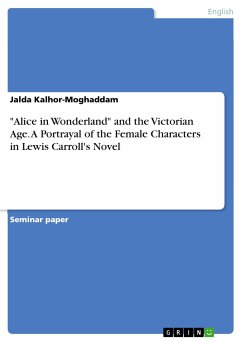Bachelor Thesis from the year 2018 in the subject American Studies - Literature, grade: 2,3, University of Mannheim (Lehrstuhl für Amerikanische Literatur- und Kulturwissenschaft), language: English, abstract: This paper seeks to explore the social construction of race and how race constitutes identity in "Light in August" by means of historic background. William Faulkner is one of the most popular and influential authors of the 20th century; not without reason has he won the Nobel Prize in Literature in 1949. Setting most of his novels' plots in the fictional Yoknapatawpha County in Mississipi, he portrays life in the American South and the still lingering aftermaths of the lost Civil War, some of which are: Southern history, climate, geography, natural life, customs, traditions, ideologies, living conditions and speech patterns. In "Light in August", race, like in many of Faulkner's works, is a basic theme. However, in "Light in August", belonging to a certain race is not only part of a person's identity; it is the central framework. Not only is race decisive of how fellow men and women encounter and treat a person but also how this person sees and perceives him- or herself. Hence, identity feeds from race. If there is no clear affiliation to a specific race, identity crisis and a constant search for self can arise as is the case with Joe Christmas in Faulkner's novel. It impacts how Christmas is approached from a very young age by those who know of his black background. Moreover, people change their behavior towards Christmas once they discover that he is partly of African-American origin. The biggest burden for Christmas, though, is how he himself cannot figure out who he is and where his place in Southern society is.
Bitte wählen Sie Ihr Anliegen aus.
Rechnungen
Retourenschein anfordern
Bestellstatus
Storno









